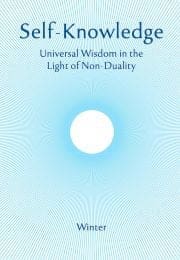The Wisdom of Shri Shankara
Shri Shankara was a great teacher and enlightened sage, who formulated the non-dual teachings as the true interpretation of the upanishadic wisdom.
One of the cardinal features of Shri Shankara’s thought is that it is concerned, not with abstract principles, but with the analysis of experience itself. In his introduction to the Brahma Sutras he goes to the heart of the matter when he draws attention to the confusion which commonly exists between the subject and the object of experience.
Experience, as soon as we think about it carefully, is profoundly paradoxical. On the one hand, it has a unity and continuity which appears to mark it out as the experience of a single unbroken consciousness. On the other hand, it has the character of multi-plicity, a broken up kaleidoscope of images and impressions, of fleeting moods and emotions which pass before the inner eye of the beholder in a never ending stream. The unity and continuity of experience is a characteristic of the experiencing subject.
All experience that we have, even the reported experience of others, is united by the fact that it presents itself before the same experiencing subject. And it is a significant and, at first sight, surprising characteristic of conscious experience, that consciousness is never experienced in the plural. This point is made with great force by the father of quantum mechanics, Erwin Schroedinger, in his little book My View of the World. The multiplicity and variety of experience is, on the other hand, characteristic of the objects of experience, which crowd across the stage of empirical life like the crowded tableaus of some mammoth spectacular.
Shri Shankara draws careful attention to the characteristics of the subject. In the first place it has the characteristic of ‘interiority’. Well have the Sufis said that the Self is nearer to one than the jugular vein. It is rightly spoken of as the innermost Self and is only truly revealed when, like Peer Gynt, we strip off all the skins of the onion of the personality. In a sense it is found in the centre of the personality, within the cave of the heart, as the Upanishad says. In another sense it is not there at all, since it is not confined within these finite limits. It is found to be universal and ever present, not only in the personality, but throughout the realm of time, space and causation, which is the theatre of experience.
The second great characteristic which Shri Shankara draws attention to is the self-evidence of the subject. It requires no other light to reveal it, unlike the objects of the world or the mind. It does not require the light of torches, or fire, or the sun to illuminate it, so that our eyes can make out its features. On the contrary, it is that which illuminates the eye and enables it to see. ‘After his shining, all else shines,’ says the Upanishad, describing the majesty of the Self. For Shri Shankara, therefore, the Self is the sine qua non of experience or indeed of existence. Without it there is nothing; all things exist by virtue of it.
One of the main points he makes is that the independent light of the Self is particularly manifest in dreams. It is the light of experience which supports both the dreaming and the waking world, but Shri Shankara does not hold that the world is a dream. Indeed he distinguishes very clearly between dream and waking experience, and deals at great length with the peculiar character of dream experience which distinguishes it from the waking state. But the light of the Self is more clearly evident in the dream experience, where the mind produces pictures, worked up from the remembered fragments of waking experience, and presents them to the consciousness of the dreamer independently of the external world or the senses.
Shri Shankara’s object in propounding his philosophy was not to establish a school of thought but to bring to the notice of his generation the truth contained in the Upanishads and in particular the spiritual path to Self-realization which it propounded. And it is as a master of the practical spiritual science that we revere him, as much if not more than as a philosopher and metaphysician.
A.M.H.


